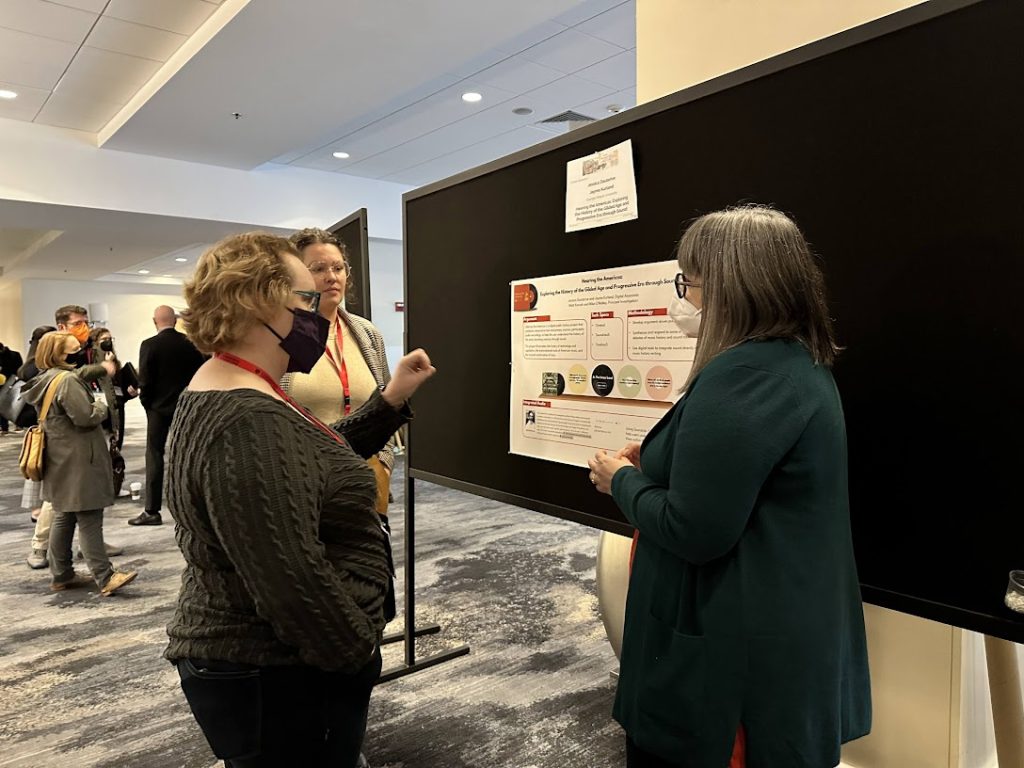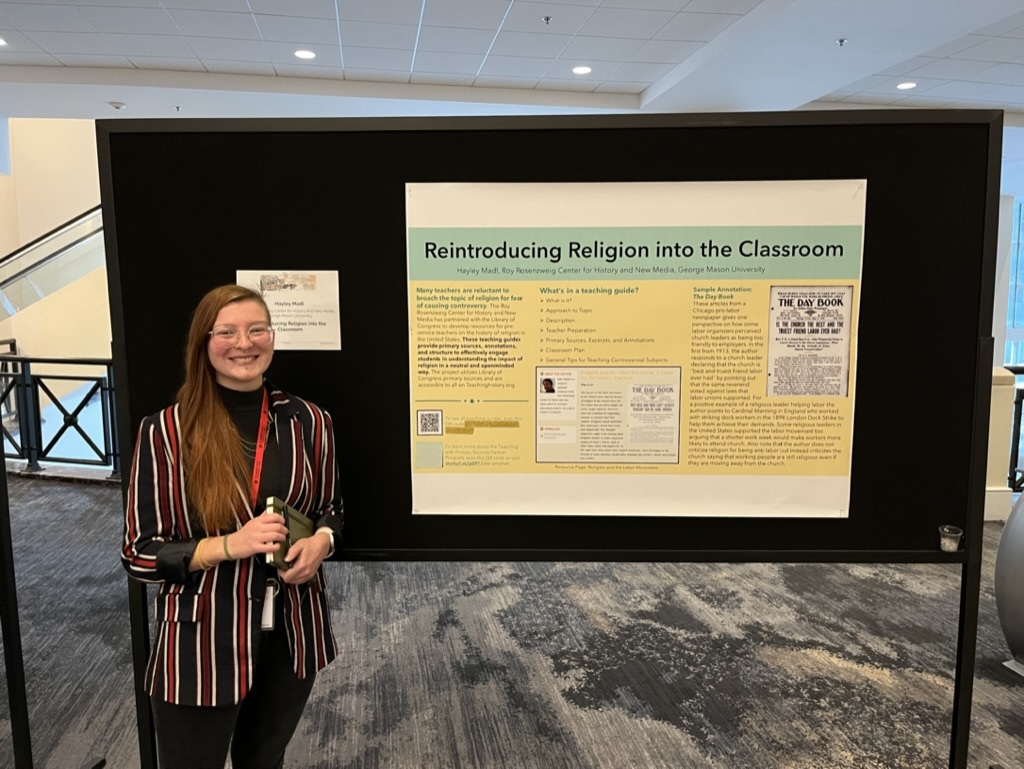RRCHNM at the AHA
The first week of January 2023 was quite a week for the team at RRCHNM. Close to twenty of us were at the annual meeting of the American Historical Association in Philadelphia, presenting papers, taking part in round tables, and showing off work at poster sessions. Our fantastic graduate students made up a significant share of all the research posters presented at the conference.
If you know RRCHNM, you probably know us as a research center creating new approaches to digital history. But our mission is also to build the future of our field by providing students a wide variety of opportunities to grow as historians. And it’s because education is so central to our mission that we were so excited to see how many of our students were on the program at the conference this year.
Among the highlights of the work presented by our students were Jessica Dauterive and Jayme Kurland’s poster presentation about their work: “Hearing the Americas: Exploring the History of the Gilded Age and Progressive Era through Sound.”
Jessica and Jayme are digital and music historians who have been essential to the creation and dissemination of our Hearing the Americas digital project, which explores the first decades of recorded music, revealing how ideas about genre, race, and nation were formed in the transnational circulation of people and records.

Hernán Adasme’s poster was titled “Clinching through the Press: A Network Analysis of Public Boxing Challenges in Central Chile, 1920-30.”
Hernán is a digital historian and a sports historian whose research focuses on the convergence of the workplace and modern sports in early twentieth century Latin America. His poster presented a sophisticated network analysis of the boxing press in Chile during the 1920s.
Hayley Madl was on the program twice, presenting her poster “Reintroducing Religion into the Classroom,” which she worked on in collaboration with Nate Sleeter, and taking part in the roundtable “Pieces of Podcasting You Don’t Know About but Should.” At the roundtable, Hayley discussed how important accessible show notes and transcripts are to reaching diverse audiences for historical podcasts.
A very large team of folks from RRCHNM presented a poster on their work on the Religious Ecologies project: “Mapping American Congregations Using the 1926 Census of Religious Bodies.” In particular, two of our graduate students—Caroline Greer and Rachel Birch showed of their work on converting spatial data gathered in the project into interactive maps.
Another of our graduate students, Greta Swain, presented the results of her research on the people enslaved by George Mason (our university’s namesake) at his plantation in Virginia: “Potomac Bound: A Spatial and Network Analysis of the People Enslaved by George Mason.”
Greta’s geospatial and network analysis highlights the networks of economic exchange that governed the lives of enslaved people in the Potomac River basin, the theme of her dissertation.
Finally, graduate student Dan Howlett presented his analysis of questions about the Afghanistan war posted on the Reddit forum r/AskHistorians “162 Questions about Afghanistan: A Case Study of Current Events and Digital Public History on Reddit.”
In addition to being a historian of the early republic and a digital historian, Dan is one of the moderators of the r/AskHistorians sub-reddit.

